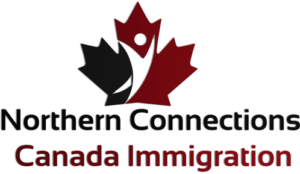On September 18, 2024, the Government of Canada announced significant changes to the Post-Graduation Work Permit (PGWP) program, study permit eligibility, and work permit rules. These changes aim to manage the growing number of temporary residents and align immigration levels with current economic needs.
Here’s what you need to know:
New Study Permit Cap
For 2025, Immigration, Refugees and Citizenship Canada (IRCC) will issue a reduced number of study permits, capping them at 437,000. This decision reflects a 10% reduction from the 2024 target of 485,000 and will stabilise the cap at this level for 2026. This adjustment is expected to lead to 300,000 fewer study permits being issued over the next few years.
Provincial Attestation Letter (PAL) Requirement
To enhance verification processes, IRCC will now require a Provincial Attestation Letter (PAL) from all master’s and doctoral students. These groups were previously exempted when the PAL was introduced to other student groups earlier this year. Approximately 12% of the study permit allocation will be reserved for these students in recognition of their contributions to the Canadian labour market. The PAL system, introduced earlier for college and undergraduate students, is part of efforts to stabilize the number of study permits issued and ensure genuine applications.
Changes to Post-Graduation Work Permit (PGWP) Eligibility
Effective November 1, 2024, new language proficiency requirements and specific criteria for eligible fields of study will be introduced. These updates are part of Canada’s efforts to manage the growing number of temporary residents and ensure alignment with key labor market needs.
PGWP Eligibility Criteria: What Remains Unchanged
To be eligible for a Post-Graduation Work Permit (PGWP), you must:
- Complete a study program at a PGWP-eligible Designated Learning Institution (DLI)
- Meet general eligibility and physical location requirements
- Applications submitted before November 1, 2024, will only need to meet current eligibility criteria
NOTE: Graduates from PGWP-eligible flight schools will continue to follow the current criteria, even after November 1, 2024.
New PGWP Requirements
For Study Permit Applications Submitted BEFORE November 1, 2024:
- If you graduated with a bachelor’s degree, master’s degree or doctoral degree from a university:
- Language requirement: You must prove your English or French language skills with a minimum level of Canadian Language Benchmarks (CLB) 7 in English or Niveaux de competence linguistique canadiens (NCLC) 7 in French in all 4 language areas.
- If you graduated in any other university program:
- Language requirement: You must prove your English or French language skills with a minimum level of CLB 7 in English or NCLC 7 in French in all 4 language areas.
- If you graduated from a college program or any other program not listed above:
- Language requirement: You must prove your English or French language skills with a minimum level of CLB 5 in English or NCLC 5 in French in all 4 language areas.
For Study Permit Applications Submitted ON or AFTER November 1, 2024:
- If you graduated from a university bachelor’s degree, master’s degree or doctoral degree program:
- Language requirement: You must prove your English or French language skills with a minimum level of Canadian Language Benchmarks (CLB) 7 in English or Niveaux de competence linguistique canadiens (NCLC) 7 in French in all 4 language areas.
- Field of study requirement: All fields of study are eligible. There is no additional field of study requirement.
- If you graduated from any other university program:
- Language requirement: You must prove your English or French language skills with a minimum level of CLB 7 in English or NCLC 7 in French in all 4 language areas.
- Field of study requirement: You must graduate in an eligible field of study.
- If you graduated from a college program or any other program not listed above:
- Language requirement: You must prove your English or French language skills with a minimum level of CLB 5 in English or NCLC 5 in French in all 4 language areas.
- Field of study requirement: You must graduate in an eligible field of study.
New PGWP Field of Study Requirements
Those with field of study requirements must graduate from a program linked to certain occupations in long-term shortages.
The fields of study are divided into five broad categories:
- Agriculture & Agri-Food
- Healthcare
- Science, Technology, Engineering, and Mathematics (STEM)
- Trades
- Transport
Spousal Open Work Permit (SOWP) Restrictions
IRCC is also implementing restrictions on Spousal Open Work Permits for spouses of students. Currently, spouses of master’s degree programs are eligible to apply for spousal open work permits. These new changes will see spousal open work permits limited only to spouses of students enrolled in masters programs lasting at least 16 months in duration, spouses of doctoral students, spouses of select professional programs and certain pilot programs.
The government will also be limiting work permit eligibility to include only spouses of highly skilled specialised workers such as C suite executives, scientists, engineers, lawyers, professors and technicians, workers in sectors with key labour shortages and critical sectors such as healthcare and construction.
These changes are anticipated to reduce the number of spousal work permits by 50,000 over the next three years.
Temporary Foreign Worker Program (TFWP) Adjustments
In response to shifting labour market conditions, the government is tightening the eligibility for temporary foreign workers. With unemployment rates in Canada now at 6.6% as of August 2024, the program will focus on addressing genuine labour shortages and should not replace Canadian workers or suppress wages.
Minister Randy Boissonnault stated, “The TFWP was designed to address labour market shortages when qualified Canadians were not able to fill those roles. The changes we are making today will prioritize Canadian workers and ensure that the program meets the needs of our economy.”
Strengthening Canada’s Asylum System and Visa Integrity
Canada’s immigration system has also faced increased pressure from rising asylum claims, as global displacement continues to grow. In response, the government is introducing measures to protect the integrity of the system, including:
- Partial visa requirements for Mexican nationals.
- Enhanced tools to detect visa fraud and reduce non-genuine visitor applications.
- Improvements in asylum claims processing, ensuring efficiency while maintaining fairness.
These reforms aim to support Canada’s humanitarian obligations while upholding a secure and well-managed immigration system.
The Government’s Commitment to a Sustainable Immigration System
In announcing these changes, Marc Miller, Minister of Immigration, Refugees, and Citizenship, emphasized the need for a sustainable and well-managed immigration system. He noted, “Not everyone who wants to come to Canada will be able to, and not everyone who wants to stay will be able to either. We are committed to preserving the integrity of our immigration programs, ensuring they meet the current needs of our country while setting newcomers up for success.”
As the country adapts to evolving economic and labour market conditions, these changes aim to ensure the integrity and sustainability of the immigration system. For those affected, planning and understanding these new requirements will be crucial.
Navigating the Changes: We’re Here to Help
If you’re concerned about how these new changes could impact your plans and options for remaining in Canada, we’re here to assist you with navigating these immigration policy changes.
Our team of experienced immigration consultants is dedicated to guiding you through these updates and ensuring that your immigration plans align with the latest regulations.
Schedule a personalized one-on-one consultation with one of our knowledgeable consultants to get tailored advice on study permits, work permits, and pathways to permanent residency.
We’ll assess your situation, help you navigate the application process, and make sure you’re compliant with Canada’s evolving immigration rules.
Contact us today to book your consultation and take the next step toward a successful future in Canada.
The Team at Northern Connections Canada



